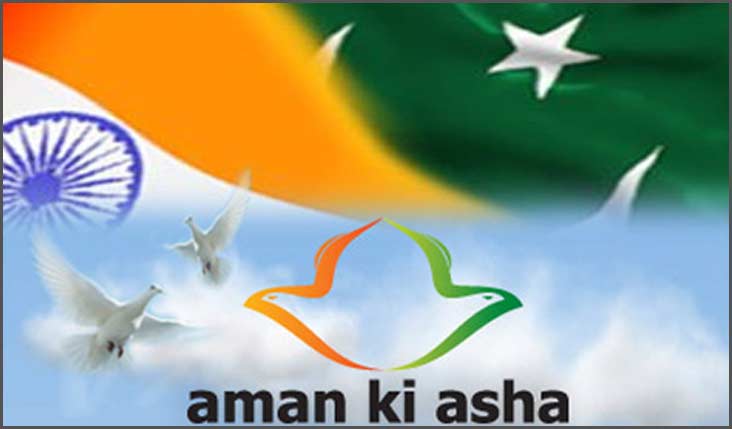 KARACHI: The people of the Subcontinent are likely to face the wrath of Colonial rule again if they do not forge unity and form a South Asian Union, former Indian Foreign Minister and author of “Jinnah: India-Partition-Independence,” Jaswant Singh, said on Tuesday during a press conference at the historic Mohatta Palace.
KARACHI: The people of the Subcontinent are likely to face the wrath of Colonial rule again if they do not forge unity and form a South Asian Union, former Indian Foreign Minister and author of “Jinnah: India-Partition-Independence,” Jaswant Singh, said on Tuesday during a press conference at the historic Mohatta Palace.
“I wish I could tell you in terms of time when this union will be established, but the people of Pakistan and India definitely have to share their sorrow and happiness together,” he said. “I fear that the failure to form a South Asian Union may result in a new form of Colonial rule in this part of the world. The United States is today’s Colonial power and we should understand it. We should be aware of its ‘selfish tactics’.”
He feared that the “new powers” would rob the people of the Subcontinent of their independence. “I often tell my American friends that they live at a distance of 8,500 miles from Afghanistan, while we live only eight and a half minutes away. I ask them if it was possible that the water of Atlantic Ocean could come to the Himalayas,” he said, adding that while the US was talking about nuclear security, one must remember that the nuclear bomb was used twice and it was the US that used it both the times.
He was asked if the marriage of Sania Mirza and Shoab Malik would establish peace in the subcontinent. Singh said that tens of thousands of inter-marriages have taken place between the people of Sindh and Rajhistan. “We need to install the situation that was prior to 1965 war,” he said. “After the 1965 War, a Berlin Wall was erected between India and Pakistan; it needs to be demolished.”
He pointed out that when he was the foreign minister of India, he proposed that there should be no city-wise visa. The “constituency of peace” needs to be pushed forward and the people of the Subcontinent have to play their vital role in this regard, he said.
The Kashmir issue can only be resolved through talks; it was high time that there were good relations between India and Pakistan because peace would not prevail in this part of the world until there were good relations between the two countries, Singh maintained. “We need continuous engagement if we want to resolve Kashmir issue. India, Pakistan and Bangladesh are unique and we should answer our questions ourselves instead of looking towards the West,” he said.
He said that for an author, one’s book was like a child and burning a book was like burning a child. Singh also shared his remorse over the extremist reaction caused by his book in India. “They should at least have read the book before punishing me,” he said.
Prior to Kargil conflict, Singh and Vajpayee came from Amritsar to Lahore on a bus and “Lahore Declaration” was signed; but hardly had the ink of that agreement dried, when Kargil episode happened. “Don’t ask me what you did,” he said, adding that Siachen was not a “water-related” issue and needed to be resolved.
Quaid-e-Azam, Mohammad Ali Jinnah was the ambassador of Hindu-Muslim unity and he was an Indian for most part of his life, Singh said, adding that the shadows of history were the main stumbling blocks in the peace process in the Subcontinent. “Let the people come forward,” he remarked.
Delivering a lecture after the press briefing, Singh said that Pakistan, India and Bangladesh lie at the crossroads of a collapsed empire. “We are all suffering due to this collapse – you in Pakistan, and we in India are paying the price of the collapse of the British Empire,” he said. “It continues to haunt us because many issues have not been resolved. The Soviet Union collapsed because it did what even Czarist Russia refrained from doing.”
The partition of India, Singh said, was not a “natural birth”; it was a “caesarian birth.”
He said that he was overwhelmed to see the gathering at Mohatta Palace and did not find such gathering even in London and New York. “I have never addressed such a gathering,” he remarked. “Pakistan and India are now realities. May they prosper because in their prosperity lies the prosperity of the entire South Asian region. To search for peace, we have to search for the origins of discord.”
“Religion and politics were inter-related for Gandhi; but for Jinnah, they were separate entities,” Singh said. “Our past is not our past; our past becomes present. Peace will continue to elude us if we fail to change our positions. We have fought with emotions; I think we should be cooler.”
On this occasion, he appreciated the joint efforts put up by Jang Group of Newspapers and Times of India for launching Aman ki Asha, to herald a new era of peace in the region.








